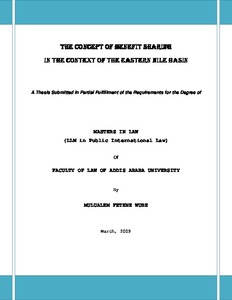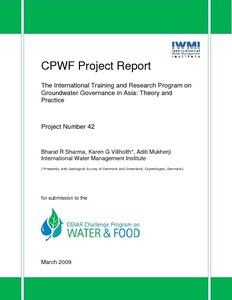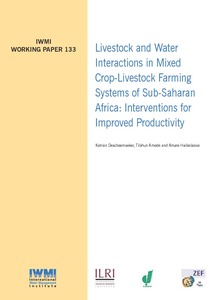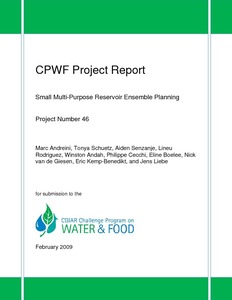The concept of benefit sharing in the context of the eastern Nile Basin
This study attempted to predict the likely impacts of a dam reservoir and flow regulation on riparian plant composition and diversity. The study was conducted around the Koga dam in the upper part of the Blue Nile basin in the northwestern part of Ethiopia. Floristic composition and diversity in the riverine and adjacent sites of the river was studied. The presence of plant species that would be affected by the storage of the Koga River water and the modification of the downstream river flow regime were assessed.









